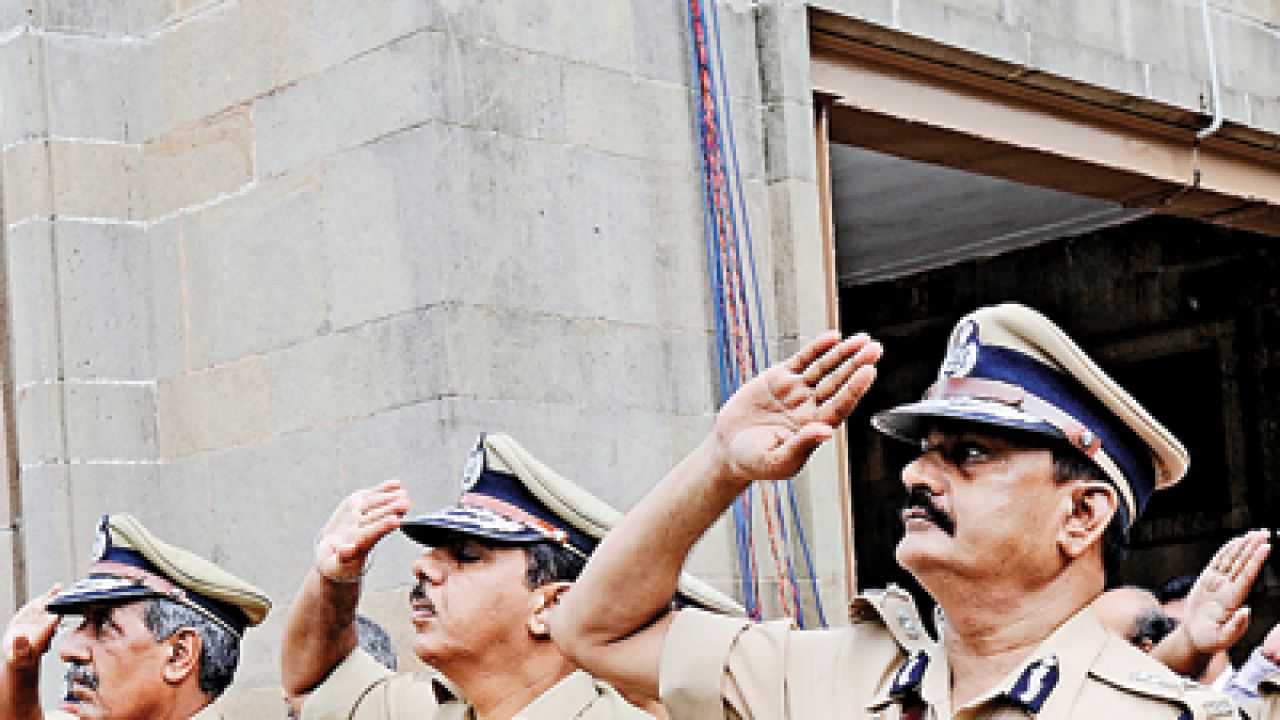
My name is Rahul Patil (name changed for obvious reasons). I'm a police constable attached to a police station in Mumbai. I'm writing these few lines because every year on October 21, a Commemoration Parade is held in every police headquarter at the state and district level, to honour peers who have met an untimely death in the course of their duty.
Mumbai is relatively safe for policemen, except for a few who were killed during communal riots and in the recent Fidayeen attack of November 26, 2008. Previously, we dealt only with the underworld, with whom there was an unwritten understanding that no policeman would be harmed lest the reply was harsher than usual.
One of our previous commissioners who fought terrorists in Punjab says that terrorists don't care for the uniform—they pump bullets into policemen when their guard is down. Policemen had to be alert at all times unlike in Mumbai where we often find time for gossip. Many of our brothers in Punjab were brought down by AK47s and their names were read out ceremoniously at the commemoration parades held in the 80s and 90s. The commissioner I spoke about nearly lost his own life, which would have resulted in his name being read out too on October 21. As a senior officer, he might have been given an Ashok Chakra!
I live in the police lines in a 180 sq.ft. room, which I was allotted because my father, grandfather and great grandfather served in the Mumbai city police. The necessity of retaining a kholi (room) forces many children of policemen like me to compete for a police job as getting accommodation in this city is no easy task. Only those who have amassed sizable fortunes through irregular means can afford private accommodation. The government helps senior IPS officers with land to build cooperative housing but we have to fend for ourselves.
My great grandfather, Parshuram Patil, served in the local arms division at Naigaon for more than 30 years. Back then, the English top brass kept their distance even from the inspectors of police. This has changed now; I am on equal terms with inspectors and sub-inspectors. Besides, there is a bond that binds us when illegal collections are distributed at the police precinct.
My grandfather, Pandurang, joined the force in the 50s. By this time, the Englishmen had left but the Indian officers who succeeded them were as strict, if not more. And they were honest! The political leaders had not learnt to interfere in transfers and disciplinary matters.
The scene had changed by the time my father, Ratnakar, joined in the 80s. The political leaders had become more assertive. They wanted more policemen around them to feel more important and they wanted the power to post and transfer policemen. The senior officers resisted and we watched their struggle with bated breath. After all, the side that won would decide the sum of our fortunes.
The government should lease out land to cooperative housing societies for policemen. It should open good schools in all police lines where quality education is imparted allowing our children to progress. The government should also arrange for health check-ups and quality medical attention in case of serious illnesses. This alone can motivate us policemen to devote serious attention to our work and ensure better delivery of service to the people.